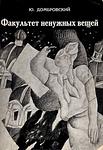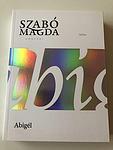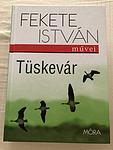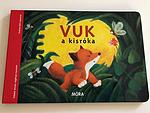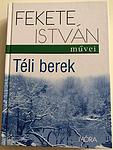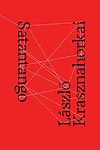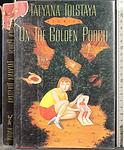The Greatest Hungarian, Russian "Fiction" Books Since 1950
Click to learn how this list is calculated.
This list represents a comprehensive and trusted collection of the greatest books. Developed through a specialized algorithm, it brings together 300 'best of' book lists to form a definitive guide to the world's most acclaimed books. For those interested in how these books are chosen, additional details can be found on the rankings page.
Genres
Countries
Date Range
Reading Statistics
Click the button below to see how many of these books you've read!
Download
If you're interested in downloading this list as a CSV file for use in a spreadsheet application, you can easily do so by clicking the button below. Please note that to ensure a manageable file size and faster download, the CSV will include details for only the first 500 books.
Download-
26. A School For Fools by Sasha Sokolov
The novel presents a fragmented and surreal narrative that delves into the mind of a young boy with a learning disability, attending a special school in the Soviet Union. Through a stream-of-consciousness style, the book explores the boy's experiences and perceptions, blending reality with fantasy, and time with memory. The protagonist's inner world is rich with poetic language and vivid imagery, reflecting his struggle to find his place in a society that marginalizes those who are different. The narrative structure defies conventional storytelling, offering a unique and challenging perspective on the nature of sanity, the power of institutions, and the complexity of the human psyche.
-
27. Child 44 by Tom Rob Smith
In a 1950s Soviet Union gripped by fear and paranoia, Leo Demidov, a dedicated officer of the state security agency, is faced with a chilling reality: a series of brutal child murders that the government refuses to acknowledge. As Leo defies his superiors and embarks on a dangerous investigation, he becomes entangled in a web of political intrigue and personal danger, risking everything to uncover the truth and protect those he loves. "Child 44" is a gripping thriller that explores the dark underbelly of a repressive regime and the resilience of one man determined to bring justice to a society plagued by secrets.
-
28. The Burn: A Novel in Three Books : (late Sixties--early Seventies) by Vassily Aksyonov
"The Burn: A Novel in Three Books : (late Sixties--early Seventies)" is a historical novel that explores the cultural and political landscape of the Soviet Union during the late 1960s and early 1970s. The book follows a group of intellectuals, artists, and dissidents who are striving to preserve their individuality and freedom in a society that is increasingly oppressive and conformist. The narrative is punctuated by surreal and fantastical elements, reflecting the characters' struggle to maintain their sanity and dignity in a world that seems to be spiraling into madness.
-
29. The Life of Insects by Victor Pelevin
"The Life of Insects" is a surreal novel that explores the complexities of post-Soviet Russia through the lens of a bizarre seaside community of humans who transform into various types of insects. The narrative unfolds through a series of interconnected stories that delve into the characters' struggles, dreams, and fears, serving as a metaphor for the human condition. The book provides a satirical commentary on society's ills, touching on themes of capitalism, corruption, and the search for identity in a rapidly changing world.
-
30. The Faculty of Useless Knowledge by Yuri Dombrovsky
"The Faculty of Useless Knowledge" delves into the life of a historian caught in the oppressive atmosphere of Stalinist Russia. The narrative explores the intellectual and emotional turmoil of the protagonist, who is ensnared in the brutal machinery of the Soviet state's ideological and bureaucratic control. Through his experiences and reflections, the book examines themes of memory, history, and the struggle to maintain intellectual integrity in a repressive society. The protagonist's journey is a poignant commentary on the value of knowledge and the human spirit's resilience against totalitarian forces.
-
31. The Zone by Sergei Dovlatov
"The Zone" is a semi-autobiographical novel that follows the life of a writer who is confined to a Soviet labor camp. Through a series of vignettes, the protagonist reflects on his experiences in the camp, the absurdities of the Soviet system, and the struggles of maintaining his identity and integrity in the face of oppression. With dark humor and sharp observations, the book offers a poignant and satirical portrayal of life in the Soviet Union.
-
32. Farewell To Matyora by Valentin Rasputin
The book is a poignant exploration of the tension between progress and tradition, set in a small Siberian village that is doomed to be submerged by the construction of a hydroelectric dam. As the government mandates the relocation of the village's inhabitants, the narrative delves into the lives of the villagers who are grappling with the loss of their ancestral home and way of life. The story is a meditation on the cost of modernization, the deep connection between people and their land, and the inevitable passing of time that brings change, often at the expense of cultural heritage and personal identity. Through the villagers' resistance and sorrow, the novel examines themes of environmental impact, the clash of ideologies, and the resilience of the human spirit in the face of displacement.
-
33. Abigél by Szabó, Magda
Set against the backdrop of World War II in Hungary, the novel follows a young girl sent to a strict boarding school in the countryside by her father, a high-ranking general who fears for her safety amidst the war. Struggling to fit in and feeling abandoned, she eventually discovers the school harbors deep secrets, including the mysterious "Abigél," a statue that seems to be at the center of a clandestine operation protecting those persecuted by the war. As the protagonist navigates the complexities of adolescence, authority, and the harsh realities of her time, she learns valuable lessons about trust, loyalty, and the power of community in the face of adversity.
-
34. Pushkin House by Andrey Bitov
The novel in question is a complex and multi-layered exploration of Soviet intellectual life, following the story of a literary scholar who becomes deeply entangled in his research on the life of a fictional 19th-century Russian poet. As the protagonist delves into the poet's work and biography, his own life begins to mirror the subject of his study, leading to a blurring of past and present, reality and fiction. The narrative weaves together themes of identity, history, and the power of literature, all set against the backdrop of the oppressive atmosphere of the Soviet Union, where the quest for personal and artistic freedom is fraught with peril and contradiction.
-
35. Tüskevár by István Fekete
The novel is a coming-of-age story that follows two city boys who spend their summer in the Hungarian countryside, near a place called Tüskevár, to learn about nature, survival, and self-reliance. Under the guidance of an old woodsman, they encounter various adventures and challenges, from learning to fish and hunt to dealing with the harsh realities of the natural world. Throughout their stay, they gain a deep appreciation for the environment and experience personal growth, ultimately leaving behind their naïve views and becoming more mature and responsible individuals.
-
36. Indul A Bakterház by Sándor Rideg
"Indul A Bakterház" is a Hungarian novel that follows the life of a young boy growing up in a rural village during the interwar period. The narrative centers around the boy's experiences in a strict, yet comical, educational system and his interactions with a cast of eccentric characters, including his family members and schoolmates. Through a series of humorous and poignant episodes, the novel paints a vivid picture of village life, exploring themes of adolescence, tradition, and the universal journey of growing up amidst the challenges of poverty and societal change.
-
37. Vuk: The Little Fox by István Fekete
The book is a captivating tale of a young fox named Vuk who, after the tragic loss of his family, embarks on a journey of survival and discovery in the wild. Under the guidance of his wise uncle Karak, Vuk learns the ways of the forest, hones his hunting skills, and navigates the perils of the natural world. As he grows, he encounters various challenges and adventures, including confrontations with hunters and other animals. The story is a poignant exploration of the circle of life, the importance of family and mentorship, and the coming-of-age of a clever and resilient protagonist.
-
38. A Funtineli Boszorkány by Albert Wass
The novel is a sweeping historical saga set in Transylvania, focusing on the life of a young peasant girl who, despite her humble origins and the tumultuous times, rises to become a powerful figure in her community. Possessing an indomitable spirit and a mysterious gift that some consider witchcraft, she navigates the complex social hierarchies and political upheavals of her era, becoming both revered and feared. Her journey is marked by love, loss, and the relentless pursuit of her destiny, as she becomes entwined with the fates of the villagers and the land itself, reflecting the broader struggles and resilience of the human spirit.
-
39. Give Me Back My Mountains by Albert Wass
"Give Me Back My Mountains" is a poignant historical novel that delves into the struggles and resilience of a Transylvanian noble family during the tumultuous period of World War II and the subsequent communist takeover. The narrative explores themes of loss, identity, and the unyielding human spirit, as the family confronts the confiscation of their ancestral lands and the erosion of their cultural heritage. Through vivid characters and rich descriptions, the book paints a picture of a bygone era, highlighting the personal and collective challenges faced by those who lived through the seismic political shifts of the 20th century in Eastern Europe.
-
40. Téli Berek by István Fekete
"Téli Berek" is a heartwarming tale set in the Hungarian countryside, following the life of a young boy and his deep connection with nature. As the winter season unfolds, the boy, along with his faithful dog, embarks on a series of adventures and encounters with the local wildlife. The narrative beautifully captures the serene and sometimes harsh realities of rural life, emphasizing the rhythms of the natural world and the boy's growing understanding and respect for the environment around him. Through vivid descriptions and a gentle storytelling style, the book paints a picture of a bygone era, where the bond between humans and nature is central to existence.
-
41. Tóték by István Örkény
"Tóték" is a satirical novella set during World War II in a Hungarian village occupied by Soviet troops. The story revolves around the Tót family, who are forced to accommodate a Russian artillery captain in their home. As the family goes to absurd lengths to please their unwanted guest, the novella humorously and critically explores themes of power, oppression, and the absurdity of war. The interactions between the Hungarian family and the Russian officer highlight the cultural misunderstandings and the tragicomic aspects of life under military occupation, offering a poignant reflection on the human condition during times of conflict.
-
42. Helping Verbs Of The Heart by Peter Esterhazy
"Helping Verbs Of The Heart" by Peter Esterhazy is a thought-provoking and introspective novel that delves into the complexities of love and relationships. Through a series of interconnected stories and characters, the book explores the various ways in which love can shape and define our lives. With lyrical prose and deep emotional insight, Esterhazy examines the power of love to both heal and wound, and ultimately leaves readers pondering the profound impact that love can have on the human heart.
-
43. Satantango by László Krasznahorkai
"Satantango" is a bleak and atmospheric novel set in a small Hungarian village, where a group of desperate and disillusioned characters become entangled in a web of deception, corruption, and despair. As they navigate through the decaying landscape and their own inner demons, the novel explores themes of power, greed, and the human capacity for both cruelty and redemption. With its rich prose and intricate storytelling, "Satantango" offers a haunting and thought-provoking reflection on the human condition.
-
44. School At The Frontier by Géza Ottlik
"School at the Frontier" is a novel set in a military academy in Hungary during the interwar period, where a group of boys navigates the complexities of adolescence against the backdrop of a strict and often oppressive educational system. The narrative delves into the intricate relationships, hierarchies, and unspoken codes that govern the lives of the students, as they form alliances, confront authority, and grapple with the looming shadow of the outside world's political turmoil. Through the lens of the protagonist's experiences, the story explores themes of loyalty, friendship, and the loss of innocence, painting a poignant picture of youth and the formative experiences that shape one's identity.
-
45. Thistle by István Fekete
"Thistle" is a heartwarming tale of a young golden eagle navigating the trials and tribulations of the natural world. Set against the backdrop of the majestic Hungarian landscape, the story follows the protagonist from its time as an eaglet in the nest through its journey to adulthood. The narrative delves into the challenges faced by the eagle, including the search for food, the threat of predators, and the struggle for survival in the changing seasons. Along the way, the eagle encounters a host of other animals, each with their own stories, contributing to a rich tapestry of wildlife and the intricate balance of nature. The book is a celebration of resilience, independence, and the beauty of the wild, offering readers a glimpse into the life of one of nature's most impressive birds of prey.
-
46. Régimódi Történet by Szabó, Magda
"Régimódi Történet" is a poignant narrative set in early 20th-century Hungary, focusing on the life of a young girl from a noble family. As she grows up, she witnesses the decline of her family's fortunes and the changing social order following World War I. The novel explores themes of love, loss, and the passage of time, as well as the impact of historical events on individual lives. Through the protagonist's eyes, the reader experiences the challenges of adapting to a new era while clinging to the values and traditions of the past. The story is a rich tapestry of personal and historical transformation, illustrating the resilience of the human spirit in the face of adversity.
-
47. Ne Féljetek by Anna Jókai
"Ne Féljetek" is a poignant reflection on the human condition, set against the backdrop of a society grappling with the oppressive weight of a totalitarian regime. The narrative delves into the lives of individuals who, amidst the pervasive fear and silence enforced by the state, find themselves wrestling with the moral complexities of courage, resistance, and the yearning for freedom. Through a tapestry of interconnected stories and characters, the book explores the subtle acts of defiance and the resilience of the human spirit in the face of an unyielding political landscape, ultimately offering a testament to the enduring power of hope and the unquenchable desire for change.
-
48. Pushkin Hills by Sergei Dovlatov
The book is a tragicomic novel that follows the story of an unsuccessful writer and divorced father who takes a summer job as a tour guide at the rural estate of a famous Russian poet. As he immerses himself in the petty concerns and daily life of the museum staff and local villagers, the protagonist grapples with his own literary ambitions, the complexities of his personal life, and the cultural legacy of the poet whose memory he is charged with preserving. The narrative is infused with sharp wit and a deep sense of irony as it explores themes of artistic integrity, cultural heritage, and the absurdities of Soviet life.
-
49. On The Golden Porch by Tatyana Tolstaya
"On The Golden Porch" is a collection of short stories that delve into the lives of various characters in Soviet Russia, exploring themes of memory, history, and the complexities of human experience. The narrative weaves through the mundane and the extraordinary, painting vivid portraits of individuals as they navigate the peculiarities of their existence. With a blend of magical realism and sharp social observation, the stories capture the essence of Russian culture and psyche during a time of great change, revealing the resilience and richness of the human spirit in the face of the absurdities of life.
-
50. Pete Pite by Gábor Nógrádi
"Pete Pite" is a children's book that follows the adventures of a young boy named Pete, who is known for his insatiable curiosity and inventive spirit. Living in a small village, Pete's inquisitive nature often leads him into amusing and sometimes challenging situations. With his trusty sidekick, a dog named Pite, Pete embarks on a series of escapades that teach him valuable life lessons about friendship, responsibility, and the importance of imagination. Through his experiences, Pete not only solves problems and helps his friends but also grows and learns about the world around him.
Reading Statistics
Click the button below to see how many of these books you've read!
Download
If you're interested in downloading this list as a CSV file for use in a spreadsheet application, you can easily do so by clicking the button below. Please note that to ensure a manageable file size and faster download, the CSV will include details for only the first 500 books.
Download



